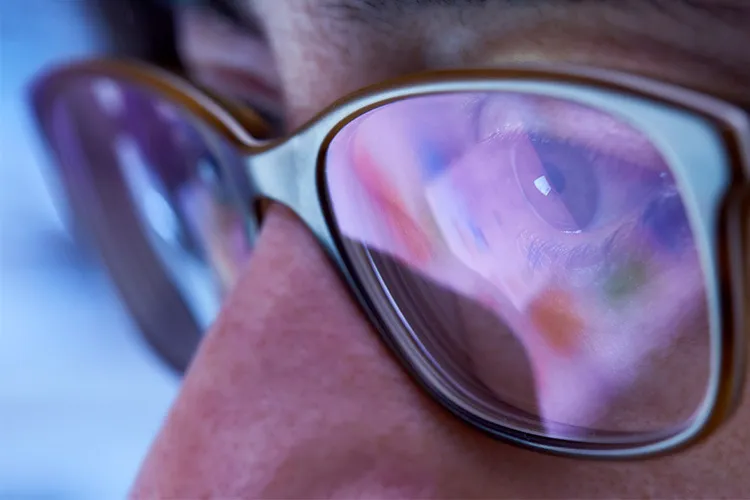Some of the misconceptions and advice about eye care that have been passed down through generations and even made their way to social media include not sitting too near the television, constantly wiping one’s eyes, and even sleeping face down. But to what degree can they be trusted? Is there any scientific basis for these suggestions?
How to Take Care of Eyes
In an interview with Jorge Valdez, scientific editor of TecScience, an ophthalmology specialist, and a health sciences researcher, he explains that while some habits may not represent a significant risk to eye health, others may indicate more serious concerns.
One of the most widely held ideas nowadays is that being too close to a screen, such as on a mobile phone or a computer, can harm one’s eyes.
Valdez points out that while prolonged screen usage might induce eye strain, it does not always result in ocular injury, albeit certain disorders can worsen with time.
Spending an extended period focusing on a single point, such as a screen or a book, can create eye strain due to the eyes’ constant effort to focus on the screen or follow fast motions, resulting in fatigue, dry eyes, and headaches.
“It has never been harmful to look at a screen up close; rather, someone who needs to get close to see probably has a condition like myopia,” Valdez said.
He also addresses the popular advice not to read in the dark or poor light. He points out that while reading in low-light situations can strain the eyes and induce fatigue, no substantial evidence supports the claim that it causes permanent vision loss.
Nonetheless, he recommends appropriate reading lighting to prevent eye strain and improve visual comfort.
Valdez notes that, in addition to this act, eye rubbing can be caused by an allergy, dry eye, or inflammation, which causes the eyes to brush against the eyelids.
“Rubbing your eyes excessively might irritate the sensitive tissues around them, exacerbating the discomfort. Instead, consult a physician to determine the source of the irritation and treat it appropriately,” Valdez explains.
The Science Behind Eye Care Myths
Valdez warns against relying on social media advice or even misconceptions passed down through generations and established in popular culture. In this case, he recommends gathering information from reliable scientific sources and speaking with experts and specialists.
“There is a lot of information that is not necessarily true, so whenever we have a condition or a doubt, we should check reliable sources,” Valdez said. His suggestions include the American Academy of Ophthalmology and medical professionals.
He observes that some home remedies may conflict with treatment; nevertheless, ongoing research is being performed to establish which ones may be beneficial in certain situations.
He even advocates browsing the internet as long as the sources are official scientific sources because, as patients, knowing oneself about a condition with reliable information can help the doctor diagnose and treat you.
Rare Diseases and Better Diagnoses
According to the American Academy of Ophthalmology, some people are still unaware of disorders like keratoconus, a thinning and distortion of the cornea into a cone shape that causes light rays to scatter and minimize vision.
Valdez notes that such unusual diseases were formerly challenging to diagnose, but when newer and more exact diagnostic procedures were available, they began to be discovered and treated more efficiently.
“Nowadays, the diagnosis we make is very precise, and more professionals are dedicated to it. We even have innovative treatments to halt the progression of this condition,” explained Valdez.
He also notes that technology continues to advance, providing new ways to care for the eyes, such as reducing blue light on screens to avoid disrupting people’s sleep cycles. Still, it also presents new challenges, such as virtual and augmented reality headsets that can increase eye dryness.
“So far, the recommendation is the same as with screens: have a proper prescription, do not overuse them, monitor humidity levels, and remember that the most valuable resource we have is specialists and medical experts.”
















